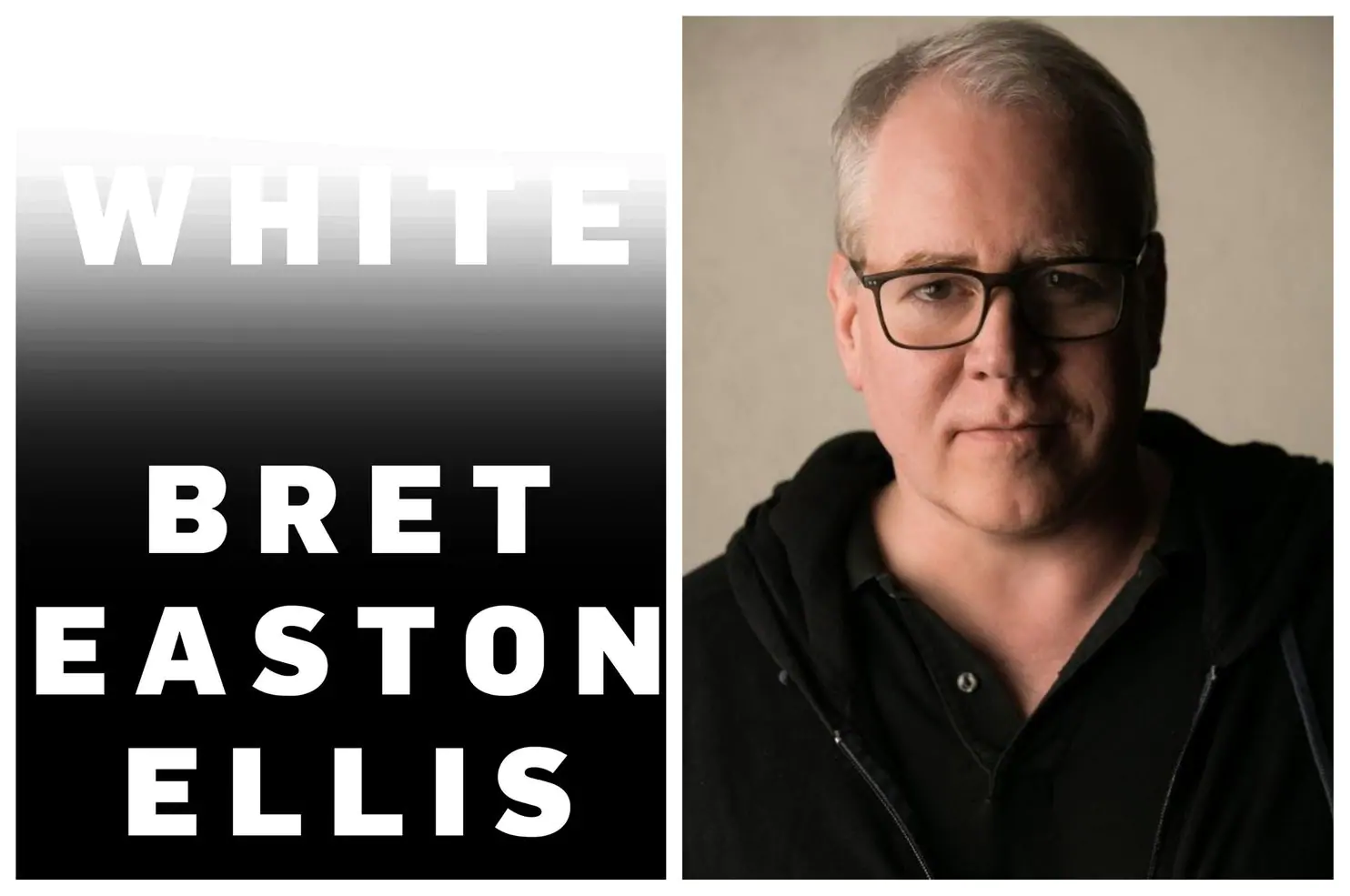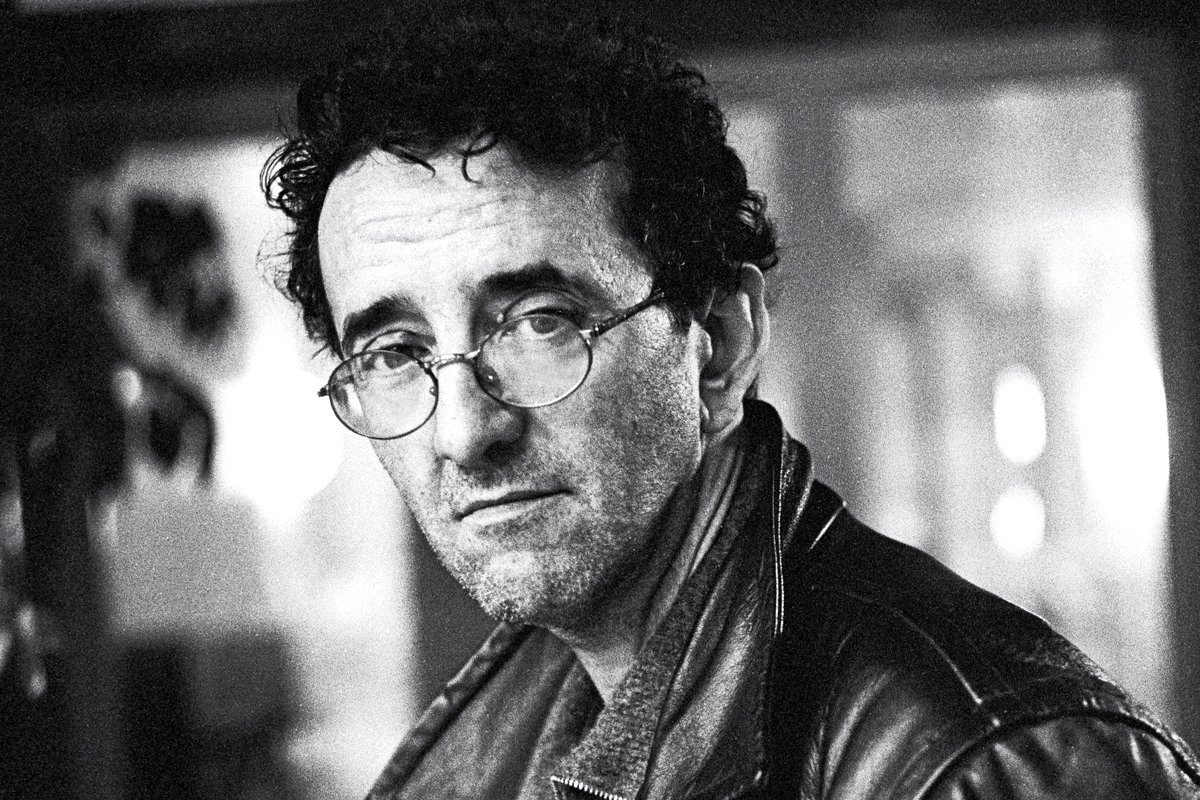
White, Brett Easton Ellis; Knopf, 272 pages
Say what you like about American Psycho but it hissed with a febrile energy. White, Bret Easton Ellis’ new non-fiction book about the problems of the world, and especially its young people, has all the energy of an ageing sloth.
"If White has a valuable function it is demonstrating that the anti-SJW industry produces a lot of dross."
White is a collection of rambling essays about Ellis’ life and his thoughts on American culture and politics. They do not read like essays, though. They read more like Facebook posts. Ellis had not published a book for nine years, and one almost has the sense that his agents demanded one and so he collected his more prolix status updates, crammed them together, and sent them off.
To be fair to Ellis, the book starts promisingly. The first essay, on his youthful fondness for horror films, is charming. The adolescent Ellis’ cinema trips became a sort of education on the darker aspects of human thought and behaviour, which, of course, he went on to explore in his own books. Here, Ellis balances the personal and the universal; self-exposure and spiritual insight.
Not for long. The second essay, covering all things Ellis, from Less Than Zero to his podcast, could only interest middle-aged Californian novelists with the initials BEE. Nothing here is relevant to anybody but its author and it is as entertaining as a mathematics exam. No one reading White could complain too much about the narcissism and the name dropping. One might as well read Dan Brown and complain about the prose. Still, I physically growled when I read the page where Ellis not only explains the plot of American Psycho but makes it sound less interesting than it actually is.
If Ellis is mildly obsessed with his novels, he is absolutely obsessed with his Twitter posts. Time and time again, he regales the readers with stories of posts that somehow triggered the libs. Not that nobody is interested in his tweets. As he documents with exhausting rigour, Ellis has often hit the headlines after posting something vaguely provocative. Yet he overreacts to overreactions. No one remembers the media flare-up that followed Ellis comparing the experience of watching Glee to “stepping in a puddle of HIV,” and yet to Ellis such passing scandals seem to have been comparable to the OJ Simpson trial or the assassination of JFK. Page after page has analysed his relationship with Twitter before one has even reached the essay titled “tweeting,” which produced in this reviewer a sensation akin to that one might feel after chewing one’s way through course after course at an insufferable function before discovering that one’s main had yet to arrive.
One of the most egregious sections in Ellis’ book comes in “tweeting” when he justifies a long-forgotten 2012 Twitter rant directed against David Foster Wallace and his biographer. Ellis slags off DFW’s books, which is fair enough, but feels the need to tell the reader twice that Wallace admired his debut novel Less Than Zero. In one mean and cowardly aside, Ellis writes:
Wallace didn't start writing fiction until he was twenty-one. The origin story is that he purportedly saw the success of the literary Brat Pack, and of other young novelists who started selling books and making money in the mid-’80s, and thought, Why not give it a shot?
This is cowardly because Ellis packages the claim that Wallace started writing out of greed and opportunism as if it is not his but the possession of some “story.” The claim is obviously false. David Foster Wallace had begun to publish fiction long before Less Than Zero went to print.
Then there is the politics. The first problem is that so much of what Ellis writes is miserably banal. “It’s worth considering whether feeling virtuous and being virtuous are the same thing,” ends one section. This might have been a half-decent throwaway line in a column about “virtue signalling” in 2015, but now it feels like a rather pointless thing to ask. (The answer, by the way, is no.)
That essay ends with this reflection on social media censorship:
Can’t they in return police your thoughts, and then your feelings and then your impulses? And, finally, can they police, ultimately, your dreams?
I dislike progressive censoriousness as well, but the pseudo-profundity is intolerable. What are “dreams” if they are separated from thoughts, feelings, and impulses? Why “finally” and “ultimately”? Who edited this book?
The banality is often a product of the narcissism. Ellis writes as if his every thought is imbued with significance, and makes little effort to explain or refine them. Writing on the 2016 presidential election, for example, he claims that he did not vote because
during the campaign I’d realized I wasn’t a conservative or a liberal, a Democrat or a Republican, and that I didn’t buy into what either party was selling. (I’d also thought Bernie Sanders’s platform was impractical to the point of absurdity.)
Why did Ellis disagree with both the Republicans and the Democrats? What would he have preferred? What was impractical about Sanders’ platform? Ellis is not offering political insight here. He is just striking a pose of bold contrarianism. One is not supposed to learn but simply to admire.
This combination of laziness and vanity is of a piece with Ellis’ attachment to his status as a figurehead for Generation X. For him, Gen X was “depressed and ironic and cool.” “As a Gen Xer,” he writes at one point, “Rejecting, or more likely ignoring the status quo came naturally to me.” Say what you like about the Baby Boomers but they inarguably changed the status quo. Generation X did the same things as their parents, a little more sarcastically. Wallace was right about the limits of irony.
Ellis is one of those ageing Generation Xers who loves nothing more than to insist that he is cooler than the kids. Millennials, or “Generation Wuss,” as he likes to call them, are just oversensitive snowflakes. True, Ellis deserves some credit for acknowledging the significance of the financial crash in heightening millennial anxieties, but in reducing hypersensitive political correctness to a generational phenomenon he ignores its ubiquity. There is no excuse for this as elsewhere Ellis writes of the hysterical self-righteousness of his middle-aged peers, though he overlooks them when it comes to deriding the young. Perhaps this is because Ellis cannot abide the thought that his fellow Generation Xers dropped their ironic facade once they had a sniff of power.
Leftists will call Ellis reactionary. He is not, or at least, not in an interesting sense. He dislikes modern progressives for their censoriousness but less because it is a means of shielding terrible ideas than because he wants to tell crass jokes without people complaining.
That is if one takes him at his word. I suspect he rather likes the complaining. It makes him feel important. Like a “bad boy”—a term that Ellis twice uses to describe himself but which is only useful when directed at dogs. Ellis is constantly flaunting his reputation, in an excitable, Sally Fieldesque way. “They hate me! They really, really hate me!”
If White has a valuable function it is demonstrating that the anti-SJW industry produces a lot of dross. Ellis has few criticisms of the content of progressive ideas. There is one laudable riff on the degrading cultural effects of their politicization of art, with a mildly interesting sub-riff on the place of the gay man as the pitiful victim of progressive propaganda, but it is detuned by Ellis’ inability to articulate alternatives and his tiresome desire to seem more progressive than the progressives. He writes, following this section:
[T]he sweet and smiley and sexually unthreatening elf with liberal values and a positive attitude is supposed to transform everyone into noble gay-loving protectors—again, as long as the gay in question toes the party line, isn’t messy or too sexual, negative or angry and offers no contradictions and is certainly not conservative or Christian.
Too sexual? Ellis must know that Grindr exists, because he mentions it elsewhere. Too angry? Come on, Bret. We know you’ve been on Twitter. Ellis, though, has no desire to be thought conservative. He’s the real radical, dammit. The true counterculture.
Ellis’ dislike for SJWs and elite liberals is largely attitudinal. They strike him as annoying. This is fair enough. They strike me as annoying as well, and one cannot blame Ellis too much for having an aesthetic more than philosophical aversion to progressives when he never claimed differently. But readers should be aware of the difference, and, frankly, should expect a fresher, wittier and more illuminating book. Ellis writes of Joan Didion that she was “a stylist first—as with all great writers, the style was where you located the meaning in her work.”
I have always been sceptical of this idea, with which I associate a lot of florid sub-Nabokovian drivel. White inadvertently reinforces the idea, however, with prose as idle and uninspired as its observations. Perhaps Twitter is to blame for this book and Ellis’ failure to produce a novel since 2010’s Imperial Bedrooms. The medium encourages unmediated rambling and ranting, which might have resulted in the central irony of this book. Ellis is of course correct that the progressive demand for art to be politically correct can stifle innovation, beauty, and insight. The problem is that he has failed to produce a book that is any of these things. American Psycho and Glamorama skewered yuppies and celebrities with style and wit. White flails at millennials and well-heeled “resisters” with neither quality. Ellis can make a splash by being mildly un-PC, attracting praise and scorn merely for his opinions, so what incentive is there to do it with much élan? His artistic failure becomes a mild sort of intellectual vindication.
At one point in White Ellis has qualified praise for Milo Yiannopoulos. After buying White I noticed an Amazon advertisement for a free sample of Yiannopoulos’ new short book, How to Be Poor. Morbidly curious, I read it. Yes, it was puerile, narcissistic, and self-aggrandizing, and it could have been written by a hired flunky, but the meanest thing I can say about White is that it made How to Be Poor seem rather spirited.

